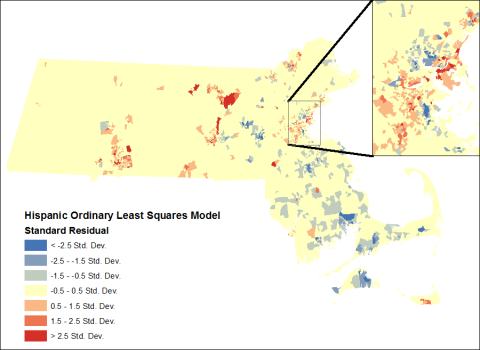
• Illustrate historic sites and extract features from old maps;
• Spatially correlate census, economic, and other data;
• Display geologic formations and delineate watersheds;
• Track human, animal, and plant populations; and
• Map locations from a GPS receiver.
You will learn about:
• Constructing and Sharing Maps (including with Google Earth);
• Mapping Named Data (including census data and street addresses);
• Mapping Coordinate Data (including using a GPS receiver);
• Mapping Image Data (including scanned maps and satellite data); and
• Extracting Map Features
ArcGIS can be (but does not need to be) installed on faculty, staff, and student Windows computers, or on Macs running Windows under Parallels (note link to the Student Edition) or a similar virtual machine (16 GB of total RAM is highly recommended!). Download ArcGIS 10.7.1 from the Amherst Software Collection. Other arrangements will be made for participants who do not have a capable computer.
This workshop will begin on Friday, January 29, 1 PM – 3 PM, and will run asynchronously thereafter, with a couple of check-ins per week, ending around February 11.
Please contact Andy Anderson for more information.
Please register to receive course details: